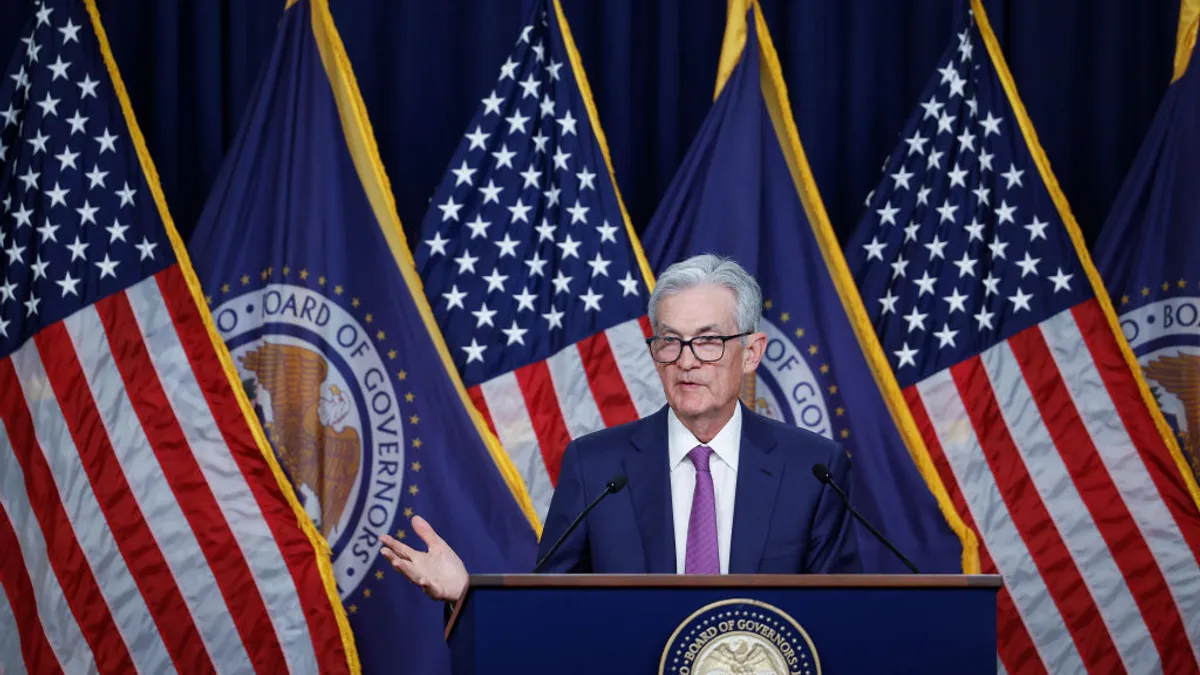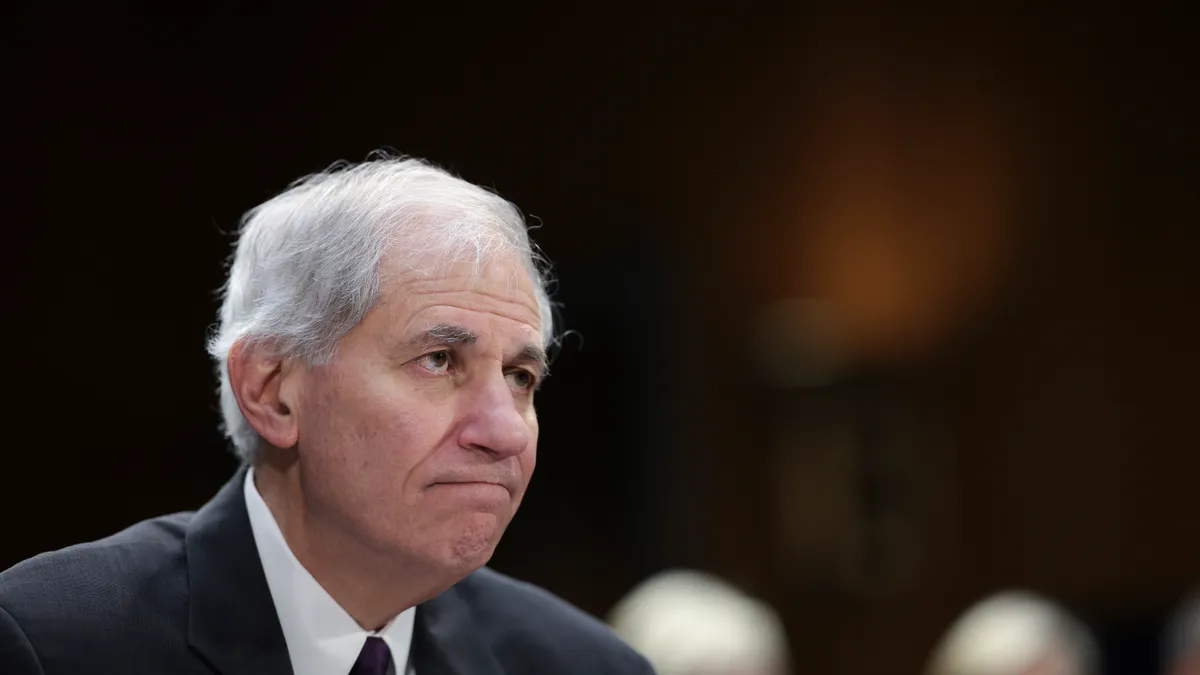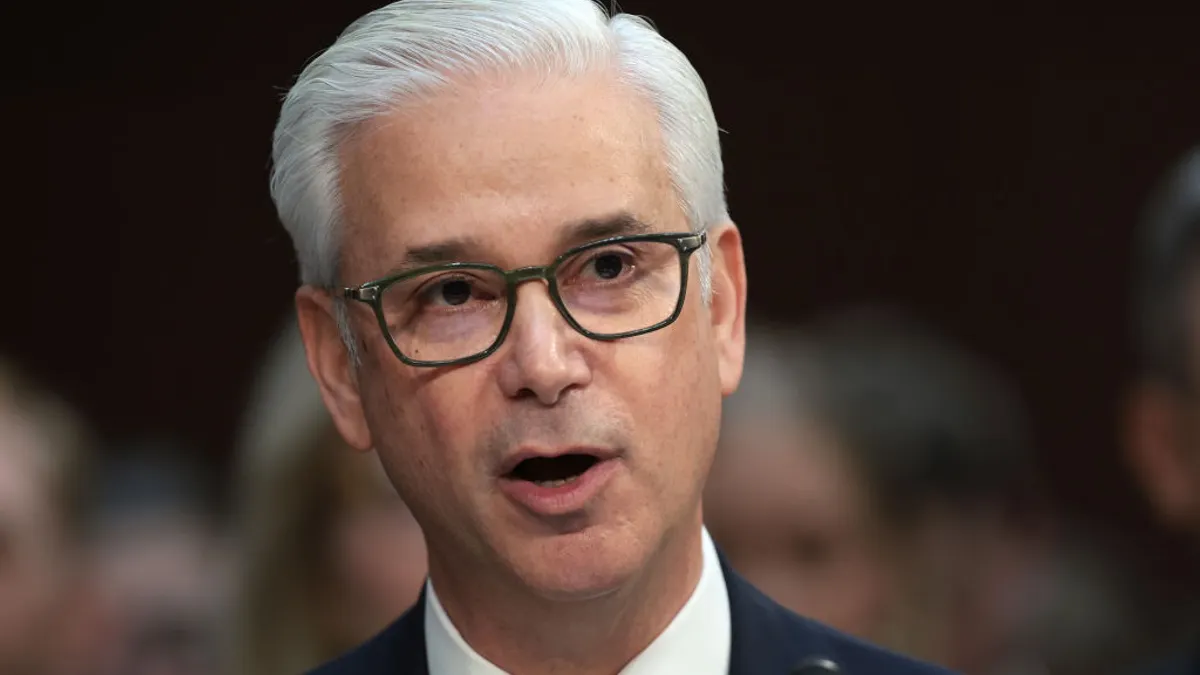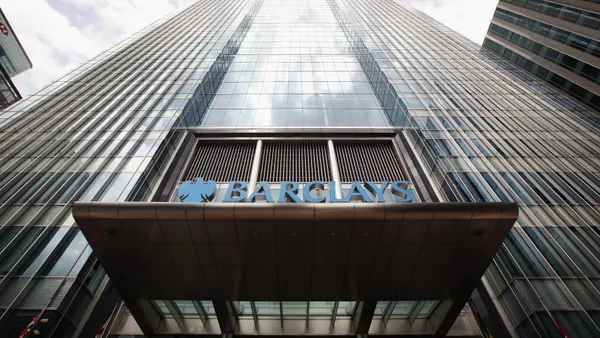Twenty-three Democratic attorneys general threw their support Wednesday behind the city of Baltimore’s efforts to stop what they argue is a move by leaders at the Consumer Financial Protection Bureau to defund the agency.
“In the absence of a functioning CFPB, States have suddenly lost the CFPB’s significant expertise and resources that can be invaluable in ongoing matters that protect their residents,” the AGs wrote in an amicus brief.
Baltimore sued the CFPB last week, arguing that the bureau’s acting director, Russ Vought, is trying to shut down the agency “by fiat” by refusing to take any unappropriated funding from the Federal Reserve beginning in April.
But Vought, in his first days leading the bureau, also ordered the agency’s employees to stop doing any work as representatives from the Department of Government Efficiency investigated areas where the agency’s funding could be cut.
“States’ access to the benefits provided by the CFPB has effectively ceased. Referrals of consumer complaints to the CFPB have been left in limbo,” the AGs wrote. “States that have collaborative enforcement investigations or active litigations pending, or that have previously established schedules for joint supervisory examinations, have been unable to communicate directly with their CFPB counterparts. And direct inquiries to the CFPB by States have gone unanswered.”
However, attorneys for the federal government, in their own filing with the district court in Maryland on Thursday, argued that Baltimore’s claims that CFPB leadership will cause “irreparable harm” stem from “baseless speculation” that the bureau’s complaint database and materials would be made unavailable.
Baltimore’s “arguments are premised on baseless speculation that the CFPB will make decisions about the Bureau’s funding mechanisms making it impossible for the agency to maintain essential functions,” attorneys for the federal government wrote.
The CFPB’s attorneys argue Baltimore’s show of harm isn’t specific enough – namely, that their request to stop leadership from “taking any steps to defund” the agency fails to “describe in reasonable detail ... the act or acts restrained.”
Among the chief risks of the stop-work order is a standstill at the CFPB’s statutorily mandated complaint database, which accepts roughly 25,000 submissions per week, the 23 AGs argued.
“Although some States have similar mechanisms in place, those mechanisms by themselves cannot replace overnight the CFPB’s vast nationwide complaint intake system,” the AGs said.
California Attorney General Rob Bonta called the CFPB a “force multiplier” for state consumer protection efforts.
“The Trump Administration’s takeover of the CFPB is an effort to destroy the agency responsible for overseeing the mortgage markets, stopping predatory debt collectors and preventing American families from being exploited by big banks and payday lenders,” Bonta said in a release Wednesday. “From sharing complaints and trend data, to providing training, and partnering on joint investigations and litigations, the loss of CFPB’s partnership has devastating and deep implications for California and households across the nation."
In their amicus brief, the AGs cited a case in which seven states partnered with the CFPB to end what they called an illegal debt-relief scheme.
“Defendants in that case are already seeking to take advantage of the CFPB’s inactivity,” the AGs wrote. “They have sought to have a previously entered preliminary injunction lifted on the ground that ‘the CFPB may still exist in theory, but it is wholly nonfunctional.’”
The AGs argue that the CFPB’s work stoppage runs counter to public interest. The CFPB’s attorneys, however, argued Thursday that public interest cuts two ways.
“Against Plaintiffs’ lackluster showing of harm weighs the significant public interest in permitting Defendants to carry out their statutory responsibilities consistent with the philosophy of a new administration brought about by a national election,” the CFPB’s attorneys argued, citing a 2012 case. “A change in administration brought about by the people casting their votes is a perfectly reasonable basis for an executive agency’s reappraisal of the costs and benefits of its programs.”
Along with California, the attorneys general of Arizona, Colorado, Connecticut, Delaware, Hawaii, Illinois, Maine, Maryland, Massachusetts, Michigan, Minnesota, Nevada, New Jersey, New Mexico, New York, North Carolina, Oregon, Rhode Island, Vermont, Washington, Wisconsin and the District of Columbia joined the amicus brief.
“Eliminating the CFPB will hurt everyday people and benefit billionaires like Elon Musk and his friends,” New York Attorney General Letitia James said in a press release Thursday.
Musk, an adviser to the Trump administration, is the architect of DOGE but also serves as CEO of the social media site X, which has sought to launch a payments tool this year in a partnership with card network Visa. The CFPB is the only regulator with jurisdiction over the junction of technology companies and finance.
Sen. Elizabeth Warren, D-MA, and others have accused Musk of holding a conflict of interest.
“The only reason to get rid of this watchdog agency is to protect bad actors,” James said Thursday.






















